![How To Make/Create an Invitation in Google Docs [Templates + Examples]](https://images.template.net/wp-content/uploads/2023/07/How-To-Make_Create-an-Invitation-in-Google-Docs-Templates-Examples-788x443.png)
How To Make/Create an Invitation in Google Docs [Templates + Examples]
To formally invite someone or a group of people to an event or activity, you will need to send out…
Apr 26, 2023
Cards have been used to convey messages and brief information long before the advancement of technology. That said, there are different kinds of card sizes and designs out there that are used for personal and business purposes.
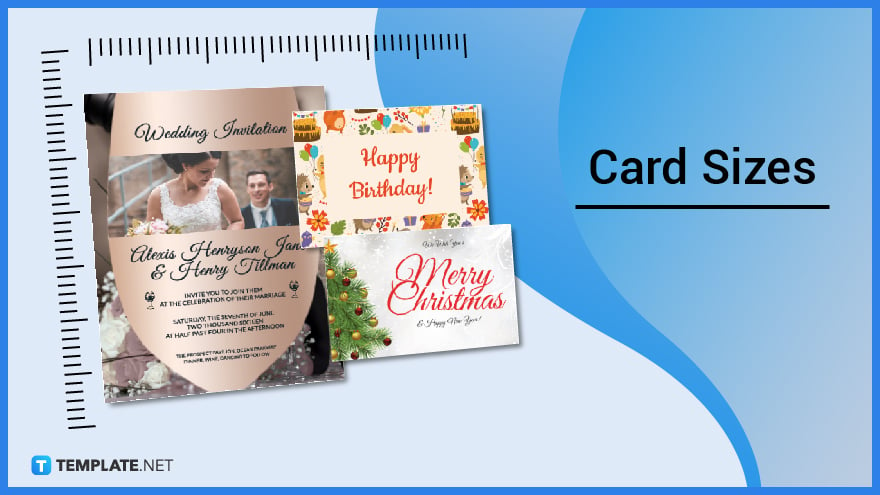
Cards vary in size, especially in different countries because they are used for all sorts of occasions. Here is the following card size standard that you may want to use:
The standard size fit for a regular card is the A6 size which is about 4 ½ by 6 ¼ inches if you’re going for a single-page card. This type is commonly used for commercially-produced greeting cards in the USA like Hallmark, American Greetings, and Quilling Card.
The 4-Bar size for cards is recommended for gift cards since the dimensions are typically the smallest in size. Having only 3 ½ by 5 inches for a single page and 5 by 7 inches in dimensions which then fold to 3 ½ by 5 inches for folded ones, this is the perfect size for giving tiny gift card trinkets to your friends and loved ones.
There is not much difference between A2 and A6. However, the A2 dimensions, which are 4 ¼ by 5 ½ inches for single pages and 5 ½ by 8 ½ folds to 4 ¼ by 5 ½ inches for folded ones, are commonly used for homemade cards or cards that you could buy from your local stationery stores.
The A7 size cards having the dimensions of 5 by 7 inches for single-page ones and 7 by 10 inches folds to 5 by 7 inches are typically used for both greeting and invitation cards. This is by far up to par with the A6 size popularity since the size is close to the Golden Ratio, hence making your cards appear more pleasing to the eye for their balanced appearance.
An A8 size card has a standard size dimension of 5 by 8 inches, which is one of the smallest sizes in the A series. These are commonly used for driver’s licenses, bank cards, and other cards of similar nature.
A8 slim size is similar in measurements to a regular A8 which is 5 by 8 inches or 52 by 74 mm. The only difference is it has a more slender layout allowing users to laminate the card.
A square-size card measures 6 ¼ by 6 ¼ inches. Cards of this size could be used for invitations, guest place cards, or gift cards.
When it comes to posting timeline card images on online platforms such as Facebook, the maximum recommended size would be 1200 × 630 pixels while the minimum size would be 600 × 315. Moreover, for Facebook ads, it is highly recommended to always upload a 1080 × 1080 pixel card with a ratio of 1.91:1 to 1:1.
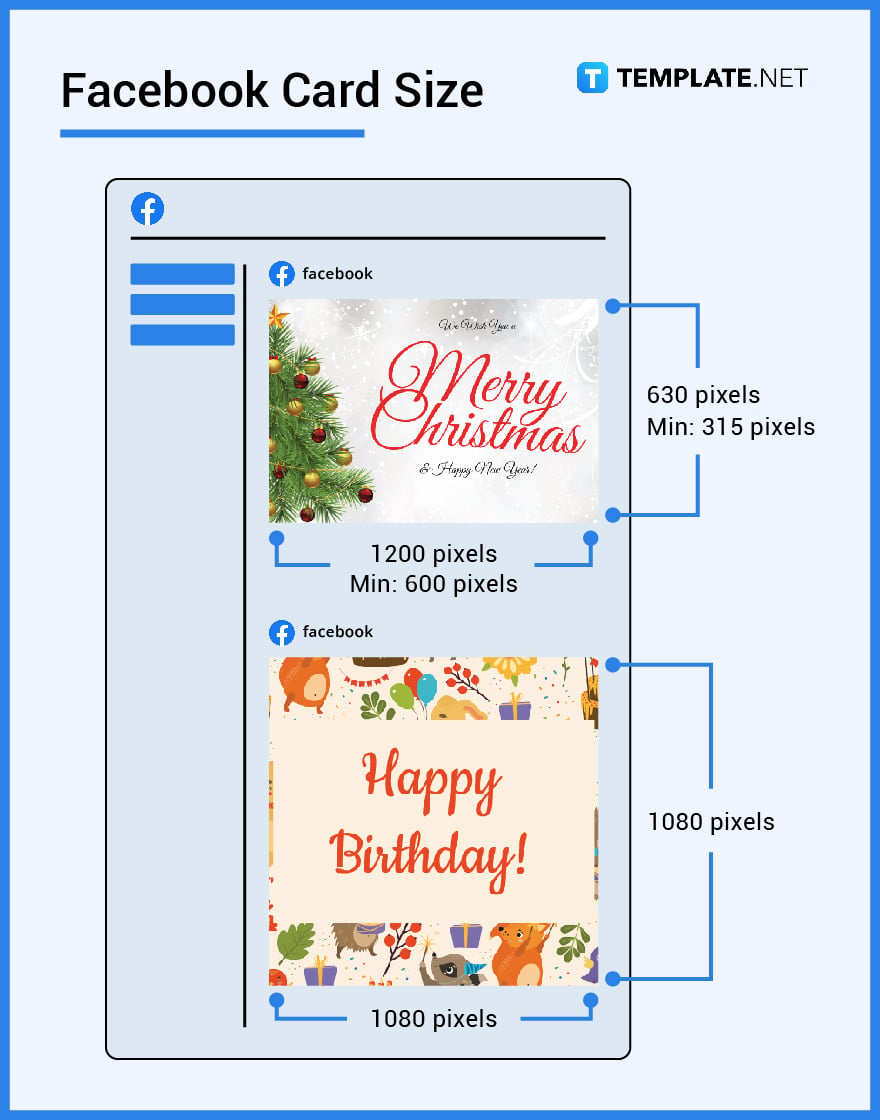
There are certain sizes when it comes to posting card images on Instagram. Landscape cards should be 1080 × 566 pixels, for portraits, you can go for 1080 × 1350 pixels, and lastly, for square photos, 1080 × 1080 is recommended. Using stories ads might be different since a landscape effect should always be added therefore the minimum width should be 320 pixels whilst the maximum width should be 1080 pixels.
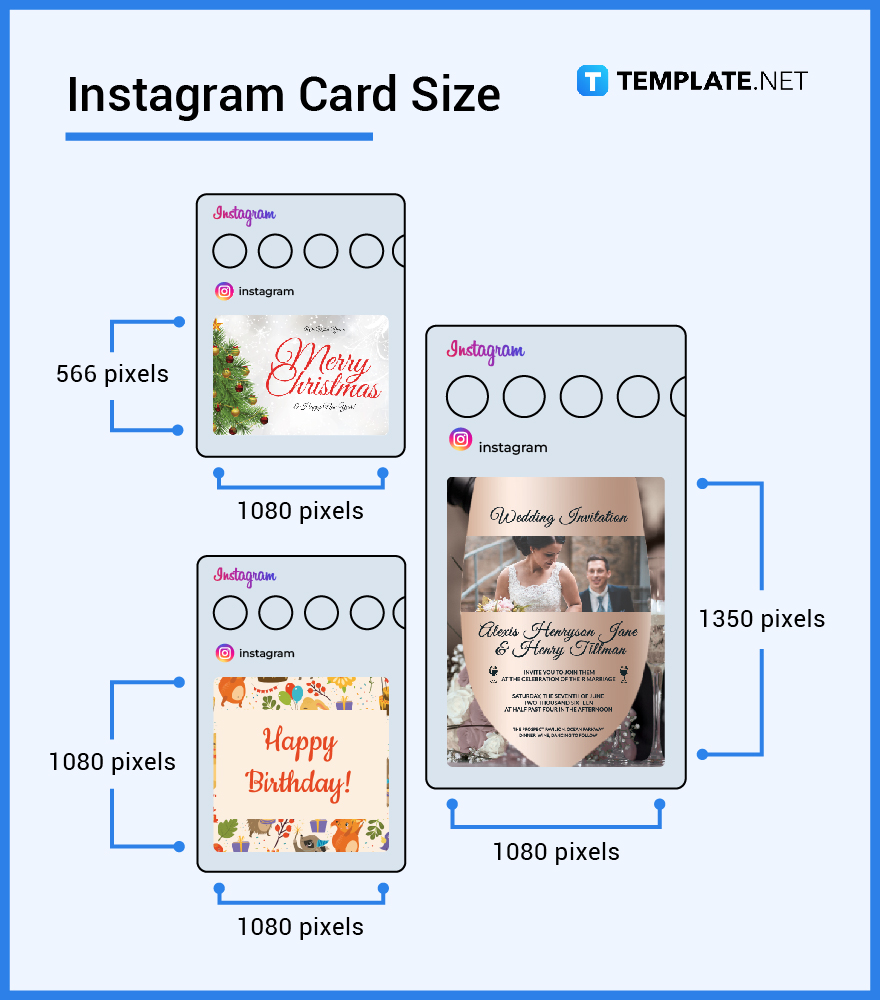
For Pinterest, uploading card images should be 1080 × 1090 pixels to get the best resolution. Moreover, for the ads and carousels, it is highly recommended to upload at least 1000 × 1500 pixels with a 2:3 aspect ratio.
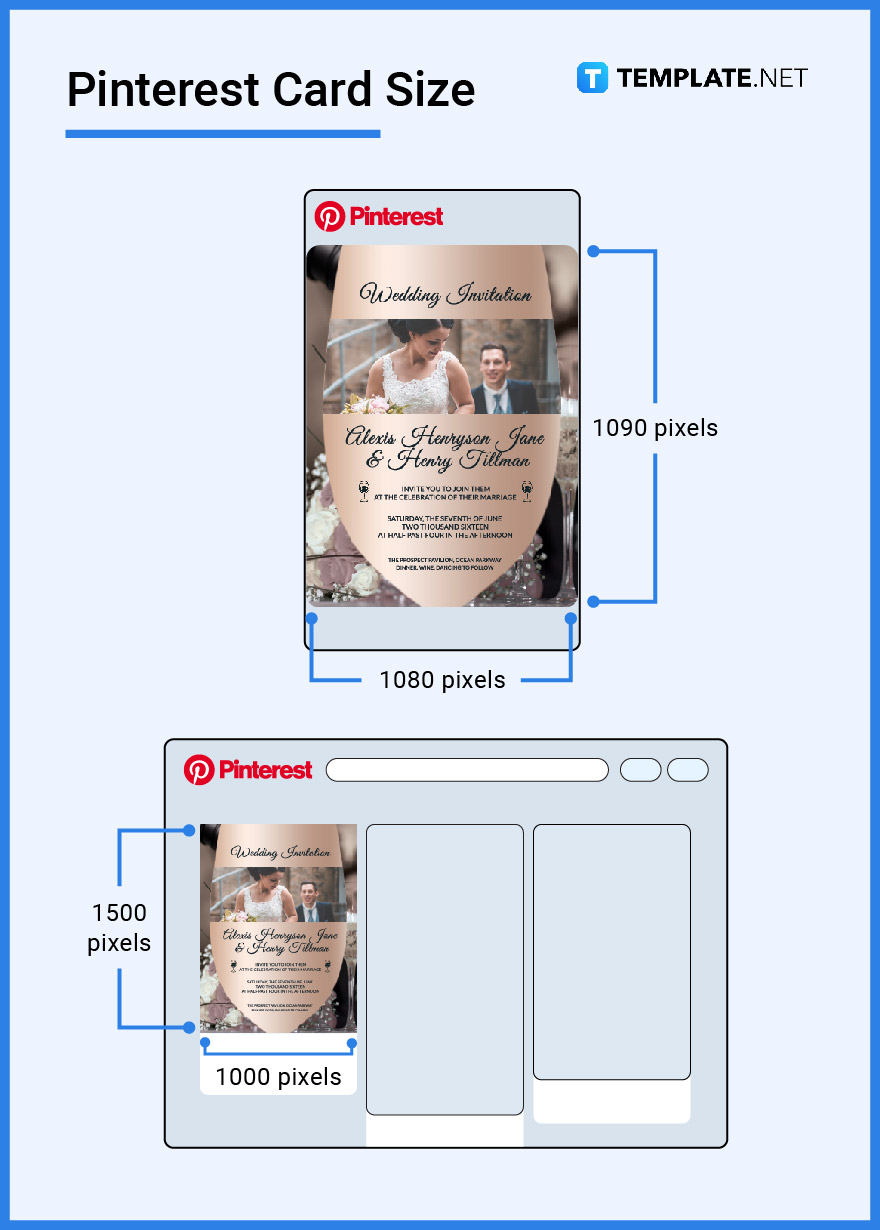
Printed cards come in different shapes and forms, thus using the standard sizes mentioned in this article works for hard copies. You have the option to use the following sizes which are A6 (4 ½” by 6 ¼”), 4-Bar ( 3 ½” by 5”) the smallest size for cards, A2 (2 ½” by 6”), A7 (5” by 7”), A8 (5” by 8”), A8 Slim (5” by 8”), A9 (5 ½” by 8 ½”) and Square (6 ¼” by 6 ¼”). In order to use the right size to print a card make sure you have carefully thought of the design or template, its main purpose/content, and if there is a need to add any pictures.
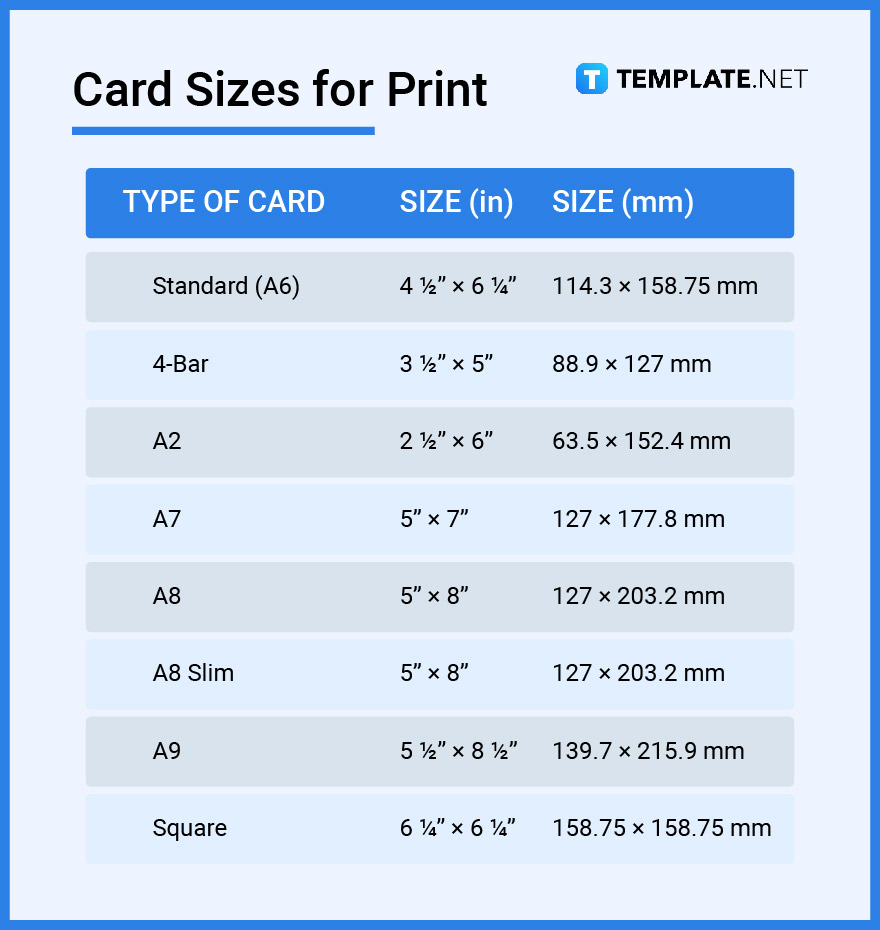
When it comes to sending cards through emails, you must also consider what type of file it’s supposed to be, whether it is in JPEG or PNG format. However, you must be following the standard high-quality digital file formats for JPEG and PNG. For JPEG, high-resolution images and documents are at least 300 pixels per inch (PPI) while for PNG images, these should be at least 1400 pixels wide for full-width images.
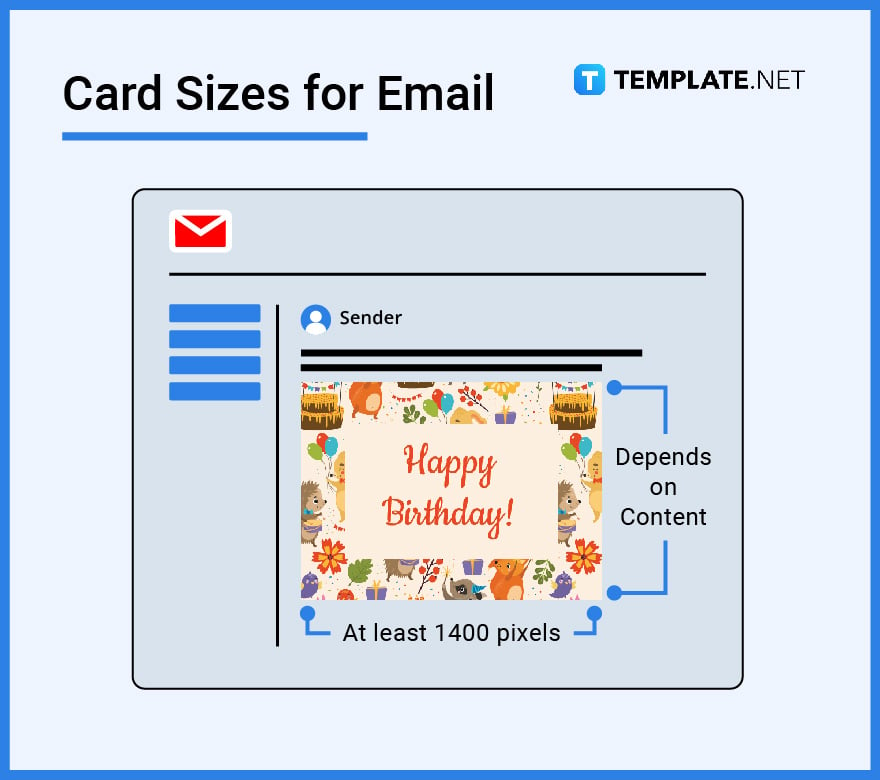
The size options that you would be needing for a card-making business are infinite! However, what works best would be an A6 size that measures 4 ½ by 6 ¼ inches in order to incorporate a handful of details or an A8 size that measures 5 by 8 inches. You can also make use of both sides of the card for more room to include other information.
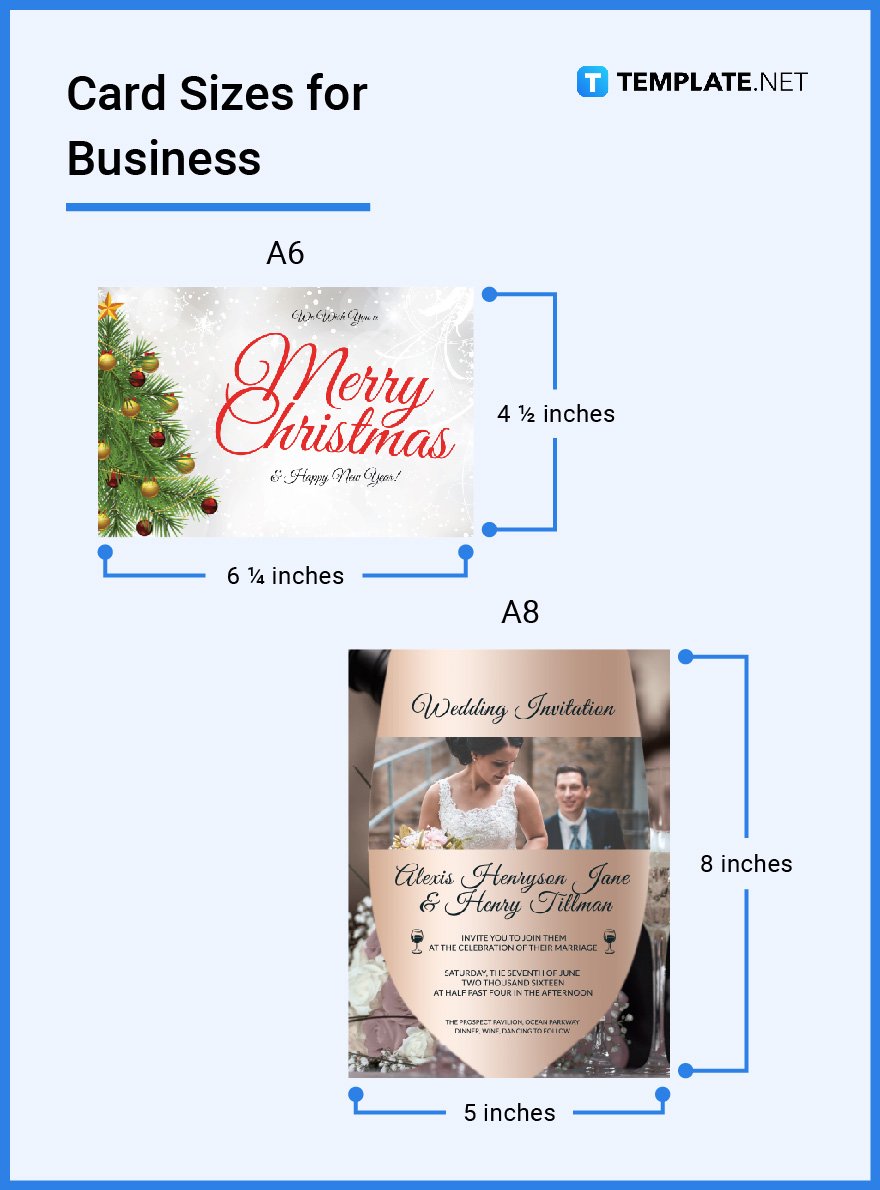
Preparing and editing cards for a school, company or for personal matters could be done through Adobe Photoshop. After considering the perfect theme and size, you will always have to remember that your canvas size should be at least a minimum of 2000 × 1200 pixels. Moreover, setting its resolution to 72 PPI for online screens and 3300 × 2500 with 300 DPI is great for prints.

For Adobe Illustrator, the best artboard size for a card could also depend on which theme and card dimensions you’re going for whether you are creating a wallet-size ID Card or a postcard. However, the dimensions, 2560 × 1600 (16:10), are perfect for new-generation Macbooks, FHD panels, laptops, and monitors. On the other hand, 1280 × 720 or 1366 × 768 (both are of 16:9) is highly compatible with old HD panels and any laptops operating Windows.
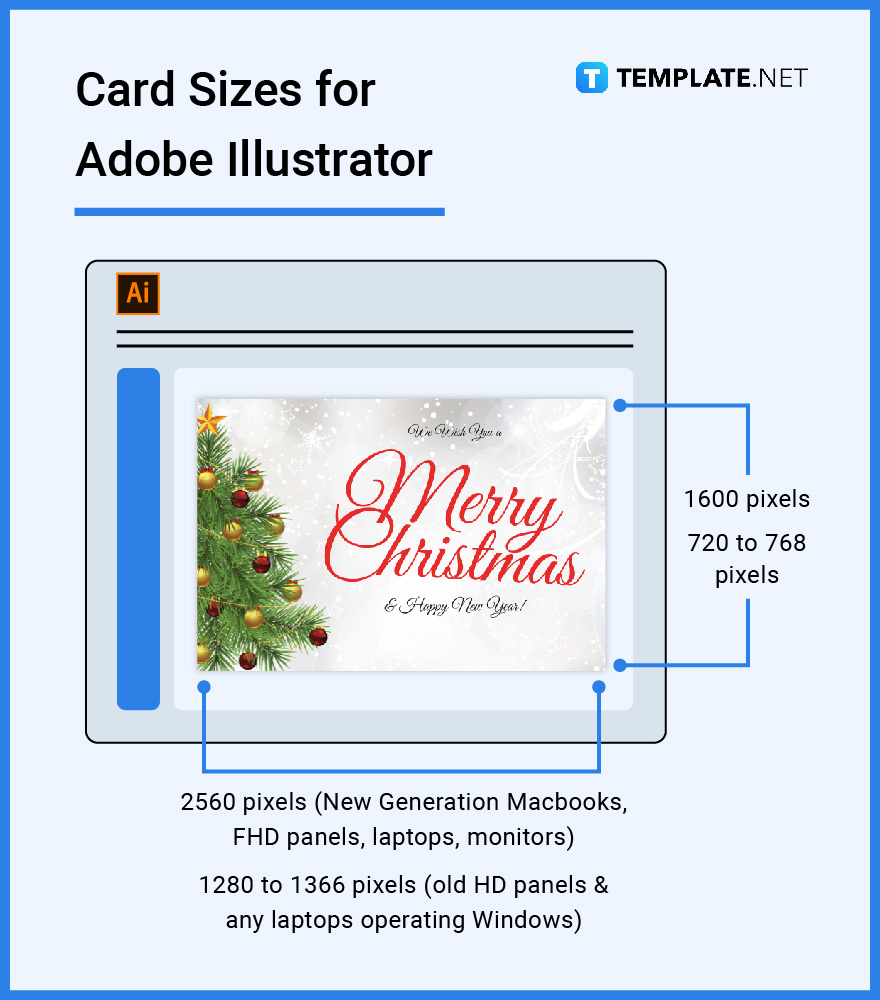
The standard size of a card is the A6 size which measures 4 ½ by 6 ¼ inches for a single page.
There are about 7 main card sizes which are 4-Bar, A2, A6, A7, A8, A8 slim, and square all of which can cater to vertical or horizontal layout orientation.
Card sizes are always measured by length, height and width considering that these are rectangular.
The standard business card size should be 8.9 by 5.1 cm or 88.9 mm by 50.8 mm in the metric system.
A standard card has dimensions of 4 ½” by 6 ¼” or 114.3 mm by 158.75 mm.
An ID card should have dimensions of 3.375 by 2.125 inches. This is called the CR80 card whose dimensions are also used for credit and debit cards.
Choosing the right card size will depend on which style or kind of card you want to have, although cards that are made out of either thick cardboard or vinyl are the best ones out there on the market.
The best dimensions to use for a card would be the two most popular sizes as depicted above which are, A6 and A7.
You need a card for both formal and casual settings as well as a means for identification.
Generally speaking, all sorts of cards are available for reproduction whether for employment, business or personal matters depending on how these are used and made.
![How To Make/Create an Invitation in Google Docs [Templates + Examples]](https://images.template.net/wp-content/uploads/2023/07/How-To-Make_Create-an-Invitation-in-Google-Docs-Templates-Examples-788x443.png)
To formally invite someone or a group of people to an event or activity, you will need to send out…
![How To Create an ID Card in Google Docs [Template + Example]](https://images.template.net/wp-content/uploads/2023/07/How-To-Create-an-ID-Card-in-Google-Docs-Template-Example-788x443.png)
ID cards are used as a way to represent an individual to the company or organization they work or volunteer…
![How to Make an ID Card in Microsoft Word [Template + Example]](https://images.template.net/wp-content/uploads/2023/07/How-to-Make-an-ID-Card-in-Microsoft-Word-Template-Example-788x443.png)
ID cards are an essential part of any employee working for a company or an organization to be recognized as…
![How To Make/Create a Book Cover in Google Docs [Templates + Examples]](https://images.template.net/wp-content/uploads/2023/07/How-To-Create-a-Book-Cover-in-Google-Docs-788x443.png)
Aside from protecting a book, book covers are specifically designed to attract readers and convey the essence of the book.…
![How To Make/Create a Book Cover in Microsoft Word [Templates + Examples]](https://images.template.net/wp-content/uploads/2023/07/How-To-Create-a-Book-Cover-in-Microsoft-Word-788x443.png)
A book cover is the outer layer of a book that is used to protect its contents. Book covers are…

Job vacancy is a common scenario in companies and organizations. Employees leave for all kinds of reasons and when they…
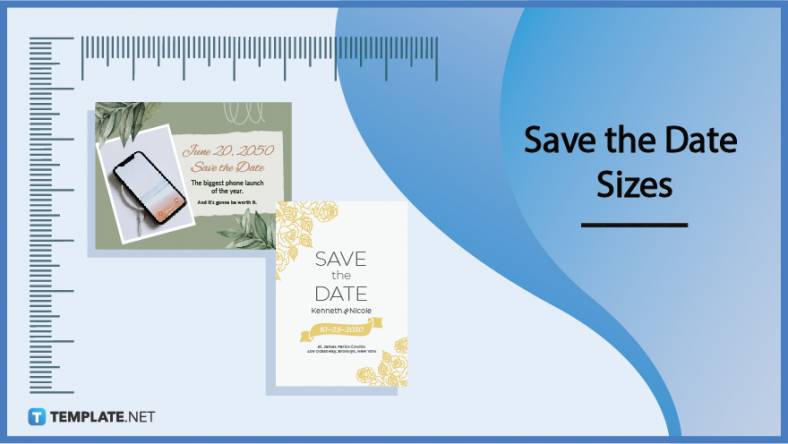
Save the date sizes are usually the same size as a formal invitation. But there are a number of different…
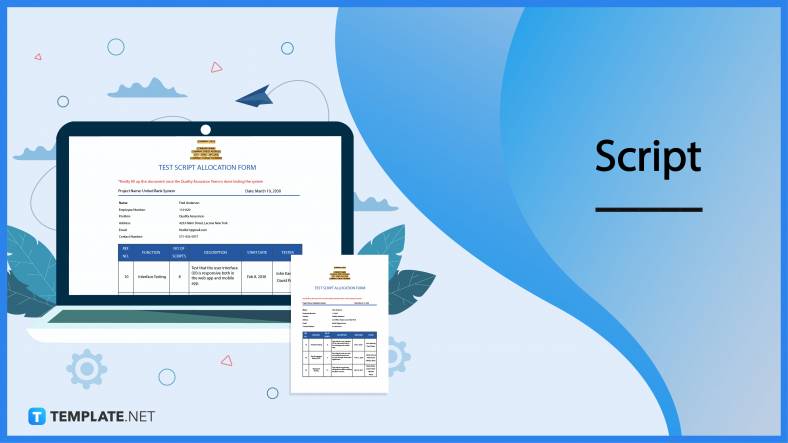
Script is a popular word that is frequently used in the entertainment world. There are a variety of areas and usages…

Presentations may not look as pleasant as how you design them with pictures, animations, videos, and other graphic designs without…